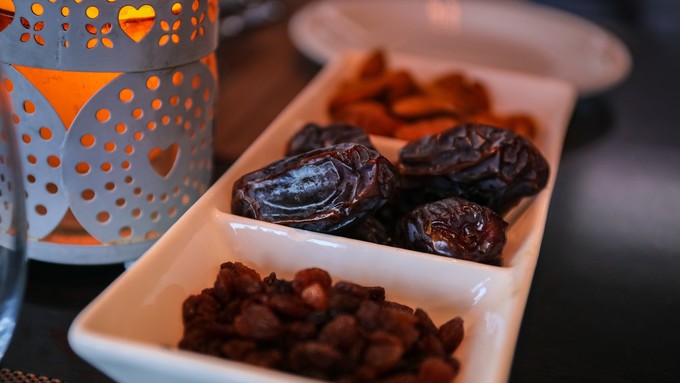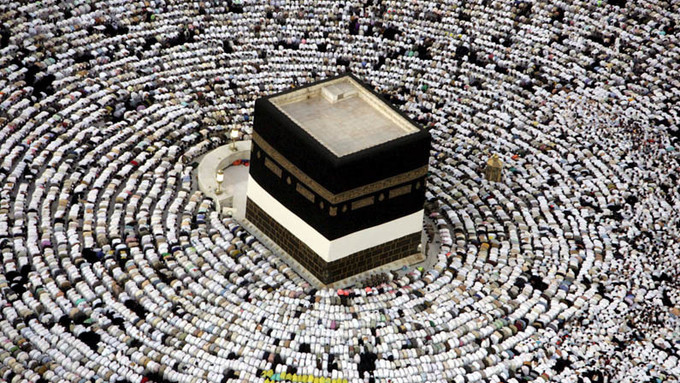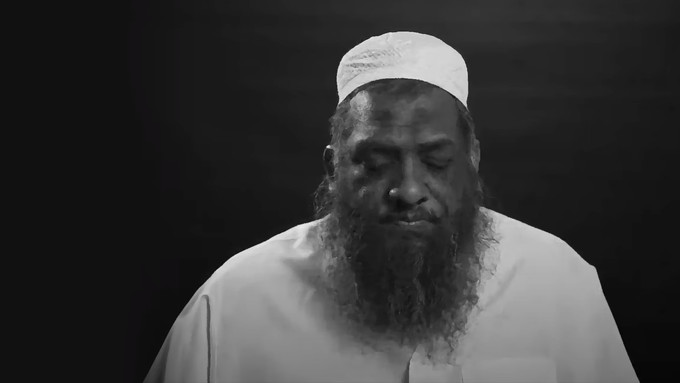The Mercy In Being Certain of the Day of Judgment
By Farah Zahir, PhD.
Surah Haqqah, chapter 69 in the Quran, is a profound chapter. It talks about the “sure reality/inevitable event” in vivid and powerful terms. Majestically beautiful, the Day of Judgment is brought to the consciousness of the reader as a sure event.
Allah (azza wajal) opens the Sura by first emphasizing the truth of the event with three ayat. Then the punishments that came to the Thamud and the A’ad people are mentioned. Then, in a sweeping narrative of history, Allah (subhahanu wa ta’ala) introduces the destruction that came to Fir’oun, then to the people of Lut (peace be upon him), and then the great flood of the time of Nuh (peace be upon him). In this Surah, unlike in other places in the Quran, the historical narrative begins with the people closest to us and goes backwards in time. This emphasizes the successive calamities that came upon people in a way to bring it to us as something immediate and close-by.
After this narrative that shakes one and brings home the undeniable truth of the destructions in the past all the way back to Nuh (peace be upon him), we are then taken through a powerful, magnificent and mystical description of that great event of the Day of Judgment. The Qur’anic description is so perfect and powerful that it is beyond me to write even a summary about—may Allah protect this poor slave, for her words will never be fit enough to speak of His words, azza wajal.
In ayat 18, Allah (azza wajal) states;
يَوْمَئِذٍ تُعْرَضُونَ لَا تَخْفَىٰ مِنكُمْ خَافِيَةٌ
Yawma idhin tu’raDoona laa taKhfaa minkum Khaafiyah -
On that Day – you will be presented/displayed & Inspected, and nothing hidden of you will be Hidden
Immediately after this, Allah (azza wajal), in His deep wisdom, describes the two classes of people: the fortunate person given his book in his right hand, and then the wretched soul who is given his book in his left hand. As we know, receiving one’s book of deeds in one’s right hand is a sign of being entered into heaven. Allah (subhahanu wa ta’ala) says;
فَأَمَّا مَنْ أُوتِيَ كِتَابَهُ بِيَمِينِهِ فَيَقُولُ هَاؤُمُ اقْرَءُوا كِتَابِيَهْ
fa ammaa man oowtiya kitaabahu bi Yameenihi fa yaQoolu haa’umu-Qra’oo kitaabiyah
Then what about the one who is given his book in his Right hand (Yameen).
And that this person will say;
إِنِّي ظَنَنتُ أَنِّي مُلَاقٍ حِسَابِيَهْ
innee Dhanantu an-Nee mulaaQin hisaabiyah
"Indeed, I was certain that I would be meeting my account.”
After this are ayat expressing the rewards this person will come to taste, beautiful passages full of reassurances and tender generosity by a Lord well pleased with His slave.
As for the one who gets his book in his left hand, a mark of entering the hell-fire (may Allah protect us all), Allah (subhahanu wa ta’ala) says;
وَأَمَّا مَنْ أُوتِيَ كِتَابَهُ بِشِمَالِهِ فَيَقُولُ يَا لَيْتَنِي لَمْ أُوتَ كِتَابِيَهْ
wa ammaa man oowtiya kitaabahu bi Shimaalihi fa yaQoolu yaa Laytanee lam oowta kitaabiyah
Then what about the one given the book of deeds in his left hand, he will say Destruction to me, Had I not been given my book
وَلَمْ أَدْرِ مَا حِسَابِيَهْ
wa lam adri maa hisaabiyah
And I was oblivious (did not remind myself) to my Accounting/Judgment.
Our Lord, who is beyond time and space, is giving us a glimpse into the state of heart people will be in on that day. He who knows us completely, the Lord and Creator of what we nowadays like to call “psychology”, is telling us even how we will react to situations. And in this telling of our reaction, we find amazing guidance, wisdom and “rahma” (compassion or grace).
Look at the saved person’s reaction: “Indeed, I was certain that I would be meeting my account”. This person, when he was alive in the world, was sure, absolutely positive that he would have to face an accounting of all his deeds/life in the future. This tells us something very important – that certainty in the Day of Judgment is not a negative, fear-engendering, over-powering, depressing feeling, but rather it is uniquely empowering.
How you ask? When one is absolutely certain that all one says and does, that every relationship in life, every task, every battle, every news-story one hears, every trial and difficulty and every ease and joy, is all fleeting, the outcome of that is that one is put firmly upon a course of moderation. When difficulty comes to the person who understands the fleeting nature of his or her life in the dunya at a deep level, that person knows it is only a passing stage and so is patient. And similarly, the one who is assured of his meeting with his record, when Allah’s blessing comes, does not “mistake the gift for the giver”. He does not, for example, love his children so much to the extent of forgetting the One who bestowed the children on him and therefore his love for his children is raised to the rank of being worship of Allah as he increases in gratitude to Allah (subhahanu wa ta’ala), and strives to bring them up as strong upright worshipers of Allah (subhahanu wa ta’ala).
All this serves to increase and emphasize the knowledge of the lordship of Allah (subhahanu wa ta’ala) and our utter dependence on Allah (subhahanu wa ta’ala). So I have found this ayat, upon contemplation, not to be fear-engendering but a true and pure drink of grace. It has taught me that I must strive to the realization of being accountable more certain in my heart and this will by Allah’s grace and will, I pray, be a great source of saving.
Imam Ghazali (may Allah have mercy on him) advised certain du’a to make when one performs wudhu— simple du’a to remind in a very impactful way of the certainty of that day. I will only mention the du’a for washing the arms here (the reader is referred to ‘Bidayat al Hidaya’ for the complete du’a for all limbs). He advises that when washing one’s right arm, that one prays that it will be the limb to be given the book, to say; “O Allah, give me my book of deeds in my right hand and judge me with leniency” (so when washing your right arm, do it slowly and carefully, by Allah’s grace may it be the same limb that one day will take a great and noble gift) and when washing the left arm, to pray “O Allah, verily I seek refuge with You from Your giving me my book of deeds in my left hand or from behind my back”.
So let us grow in this certainty of the sure inevitable event and let us see the deep wisdom in remembering it often. It will give us patience and fortitude to undergo any trial and not be shaken from the middle path during this life. This is the path of our beloved, Muhammad ﷺ, who advised us to remember death often. Understand that this is not depressing guidance but a great mark of love and grace. Paradoxically, it is your key to maintaining your sanity in this world full of depressive news and anxiety-causing events, especially nowadays when the Muslim is beleaguered on every side and hope is getting hard to hang on to.
Take this world in its stride, it is a fleeting stage only. Let us be “sure we will meet that day” and understand and appreciate the grace and love of the Lord who teaches us by exposing what we need to know so that we are reassured, guided and most of all, strengthened. Certain belief in the Day of Judgment is not a thought that should be disenfranchising but rather a strongly empowering knowledge. It brings humility, strength, and sincerity in one’s striving to please Allah, thereby enabling us to walk this path of life in the dunya with uprightness and calm dignity.
Faith & Spirituality Related Articles

5 Practical Steps To Get You Ready for Ramadan
As Ramadan is less than a month away, we might feel we often haven't done enough to prepare for it. Here are 5 things we can do right now during Shaban to make sure that we get the most out of Ramadan. The Prophet (Peace & Blessings upon Him & His Family) supplicated,” O Allah give us the blessings of Shaban and give us the treasure of Ramadan.”

Hajj at Home: Kindling the Spirit of Arafah
Even if we are not on Hajj this year, our situation is no different. We navigate through the complexities of our daily life, immersed in the never-ending responsibilities of work and family, inundated with the intrusions of technology and social media into every minute of our lives, moving from place to place and idea to idea.
